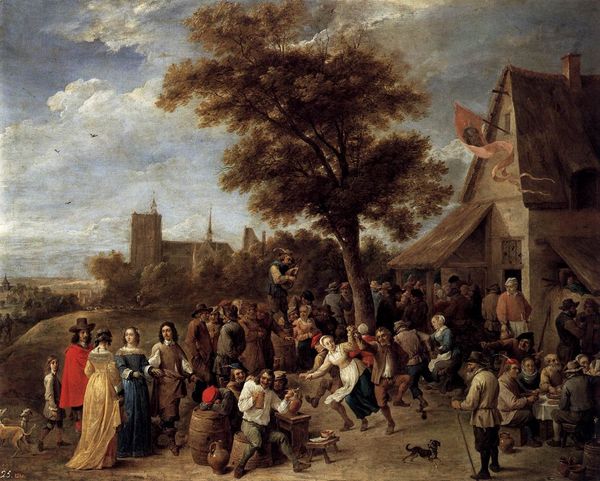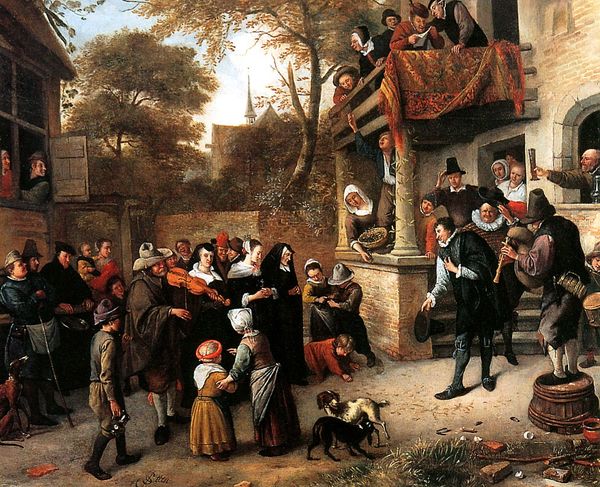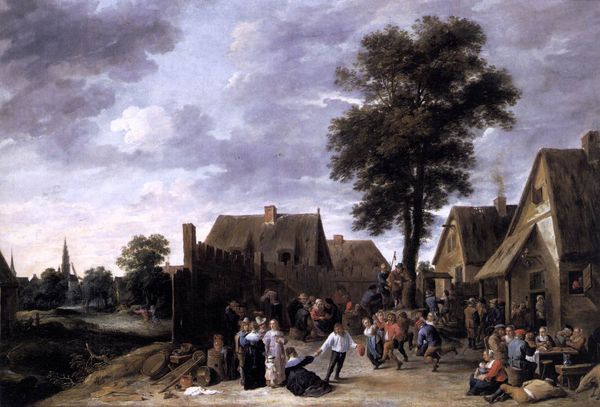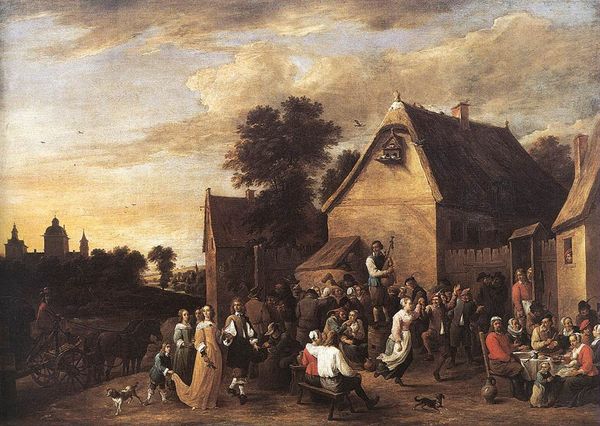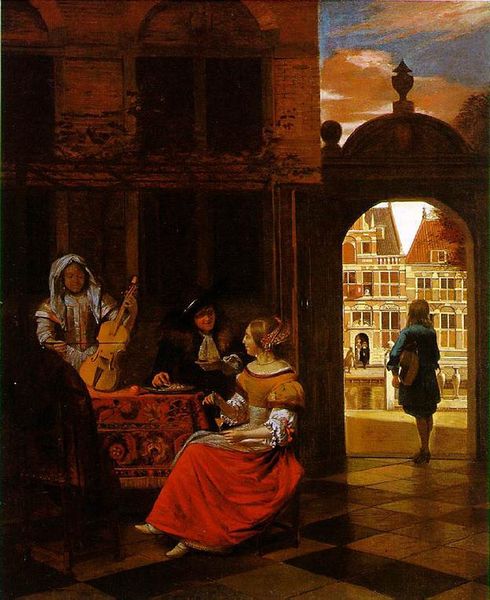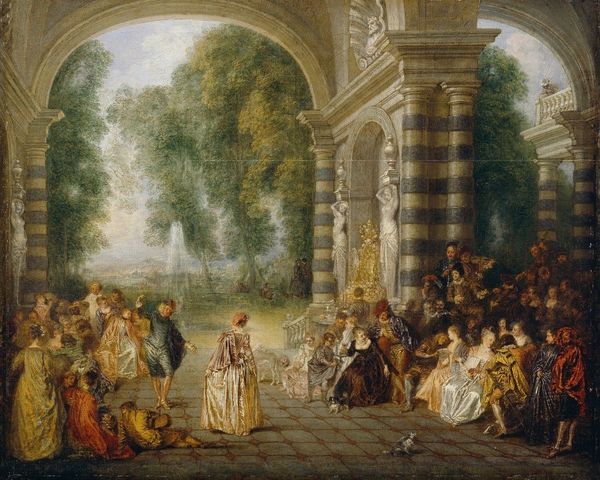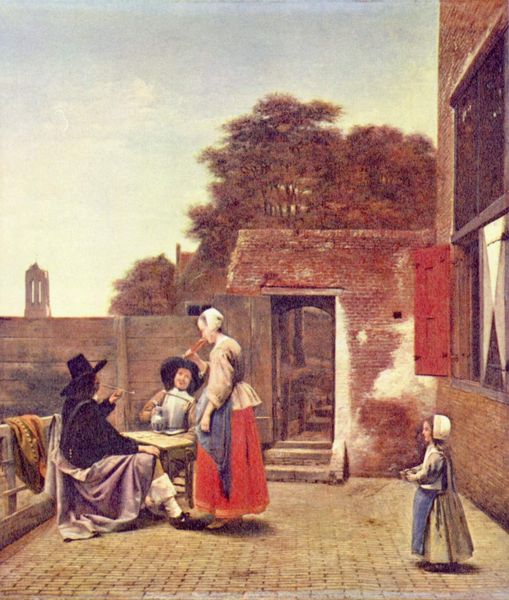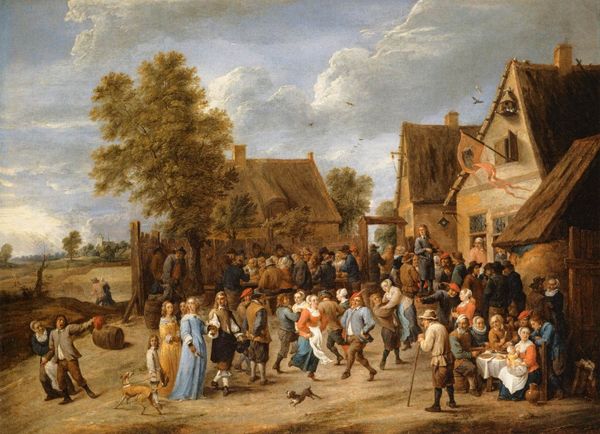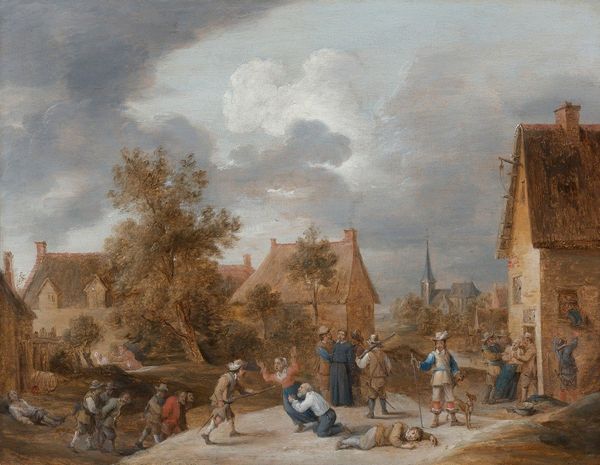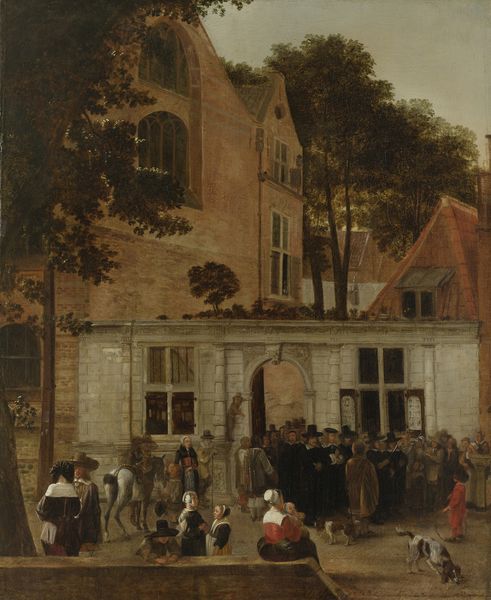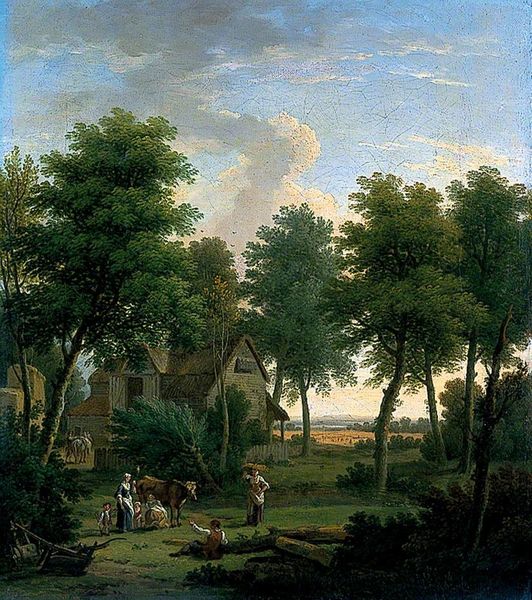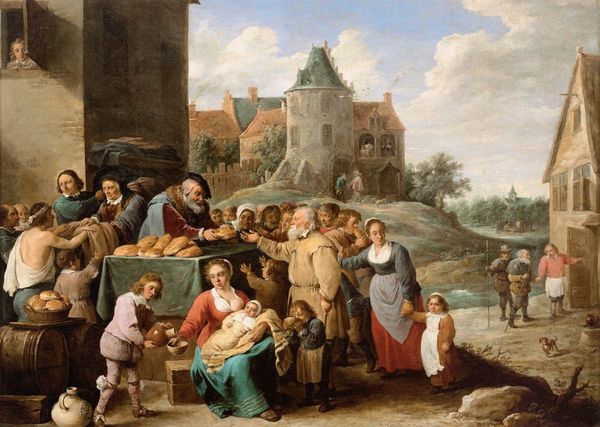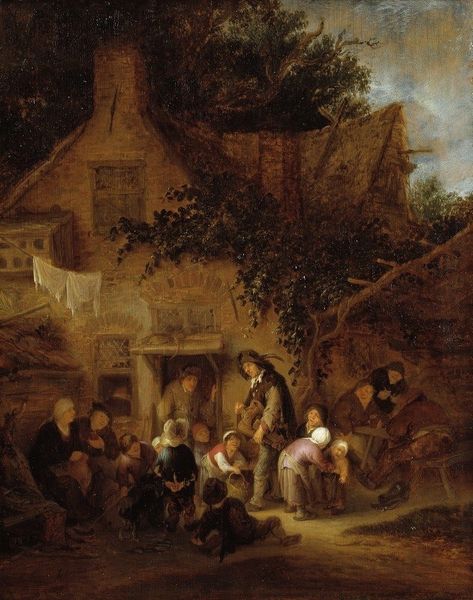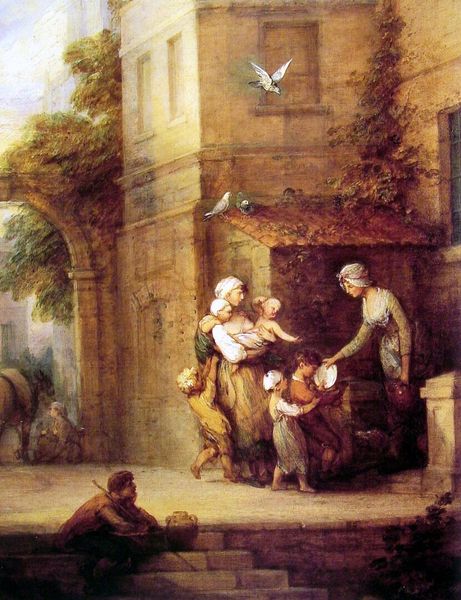
oil-paint
#
dutch-golden-age
#
oil-paint
#
landscape
#
oil painting
#
cityscape
#
genre-painting
#
realism
Dimensions: 97 x 81.3 cm
Copyright: Public domain
Curator: Welcome. Before us hangs Gabriel Metsu’s "Vegetable Market in Amsterdam," an oil painting completed around 1662. Editor: Immediately, I’m struck by the sense of organized chaos, and how warmly the light seems to embrace this scene. It almost feels like the artist wanted to freeze a transient moment of a marketplace filled with people. Curator: Metsu masterfully employs oil paint to depict the textures of the scene – the rough textiles of clothing, the smooth sheen on metal buckets, the dull matte finish on root vegetables. This wasn't simply observation but construction using varied materials. It invites consideration of access, consumerism, and even colonialism behind such goods in a hub like Amsterdam. Editor: I see it. And placing it in context—Amsterdam at that time was a vibrant center for commerce and a hotbed of social interactions. What does it tell us that Metsu chooses to depict this commonplace scene, especially concerning its themes of labor and community? Who are these individuals in the scene, and how did Metsu understand them? The artist gives as much importance to the working woman in the foreground, perhaps negotiating a price, as he does the fashionable lady at the stall’s edge. Curator: Exactly, look at how the artist shows us the making and trading. Oil paint became not just a pigment but a vehicle to negotiate material hierarchies. What's being exchanged and what's the actual worth? What does this exchange communicate about the societal structures present in Amsterdam, concerning accessibility of everyday commodities, or the implications tied to the class divide and social interaction within the urban marketplace? Editor: It’s tempting to romanticize this bustling market scene but situating it within Amsterdam's broader social and political context raises critical questions. It brings forth an introspective analysis, prompting considerations of consumer culture and what aspects Metsu chooses to emphasize. Curator: It does, it gives one so much to contemplate about art making itself and its entanglement with our collective experience. Editor: Agreed. Viewing through different perspectives, even a genre painting opens dialogues we were perhaps not initially looking for.
Comments
No comments
Be the first to comment and join the conversation on the ultimate creative platform.
